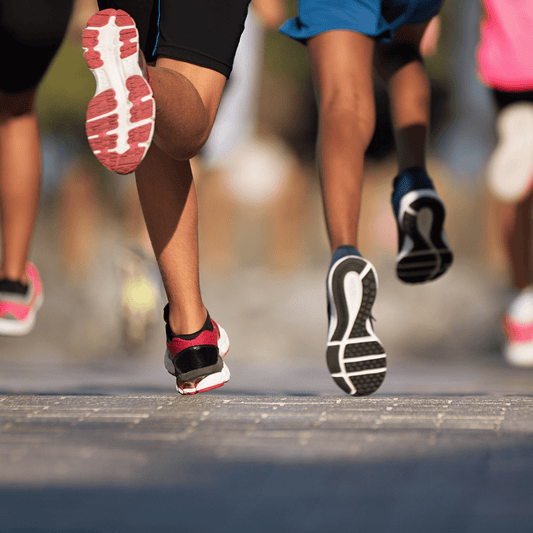In the hustle and bustle of daily life, stress is the nasty after taste. However, regular physical activity is like that friend who always knows how to cheer you up. In the long term, regular exercise reduces levels of the body's stress hormones, such as adrenaline and cortisol, acting as a natural stress reliever, boosting mood, and becoming a powerful tool in decreasing the frequency and severity of symptoms of things like depression and anxiety.
Whether it's a high-intensity interval training (HIIT) session or a gentle yoga flow, moving your body can help calm your mind and manage stress.
Engaging in regular physical activity can both help you fall asleep faster and deepen your sleep thereby improving both the quantity and quality of your all-important sleep hours. Just be mindful of the timing; exercising too close to bedtime may leave you too energised for the highest quality sleep – though I doubt it will stop you falling asleep in the first place.
The sweet spot? Finish your workout a few hours before bed, and you’re golden.
Here’s another beautiful thing about exercise – it can be a journey of self-discovery and growth. As you set and achieve goals, whether it’s running a little further, lifting a bit heavier, or simply being consistent, you build confidence and a sense of accomplishment. This isn’t just about physical strength or endurance; it’s about recognising your ability to commit to something and see it through.
Each milestone, no matter how small, is a building block for your self-esteem and over time this can have profound and positive effects on your mental health & wellbeing.
Exercise can also be a fantastic way to connect with others and foster a sense of community. Whether it’s joining a local running club, attending group fitness classes, or simply walking with a friend, these interactions can enhance your social life and improve your mood.
The shared experience of working towards personal health goals creates a bond that goes beyond the workout, offering emotional support, accountability, and motivation along the way.
Beyond mood regulation, exercise plays a key role in cognitive function. Regular physical activity boosts brain power in several ways. It increases heart rate, which pumps more oxygen to the brain. It also aids the release of hormones which provide an excellent environment for the growth of brain cells.
Exercise also promotes brain plasticity by stimulating the growth of new connections between cells in many important cortical areas of the brain. Research suggests that it may help protect your brain against cognitive decline as you age and diseases like Alzheimer's.
Now, before you think you need to transform into an ultra-marathoner or a CrossFit champion, let me stop you right there. The beauty of exercise is that it’s for everyone, and it can be tailored to fit your life. It doesn’t have to take over your life either!
The W.H.O. (World Health Organisation) recommends that adults take part in at least 150 minutes of moderate – vigorous exercise or physical activity each week, as part of a healthy and active lifestyle.
Hate running? That’s fine! How about cycling, dancing, or even vigorous gardening? The key is to find activities that you enjoy and that fit into your schedule. Consistency is more important than intensity. As little as 30 minutes a day of moderate exercise can make a significant difference in your mood and overall mental health & wellbeing.
Here’s our 4 Top Tips to help you get and stay physically active for the benefit of your mental health & wellbeing.
Set realistic goals
Start with manageable goals that don’t overwhelm you. A 10-minute walk a day is a great beginning.
Find your joy
Choose activities that make you happy. Exercise shouldn’t feel like a chore and should be a positive and motivating addition to your day, not a negative and distracting one.
Buddy up
Having a workout partner can increase accountability and make exercise more enjoyable.
Mix it up
Keep things interesting by trying different types of workouts. Variety can keep you motivated and engaged.
The psychological benefits of regular exercise are as significant as the physical ones. From boosting your mood and reducing stress to improving sleep and cognitive function, the mental health benefits of physical activity are vast and varied.
Remember, this is not about being the fittest or the fastest; it’s about creating a healthier, happier you. So, lace up those trainers, find what moves you, and let’s make every step, jump, or stretch count towards not just physical fitness, but mental resilience too.
Stay active, stay healthy, and most importantly, stay happy!





